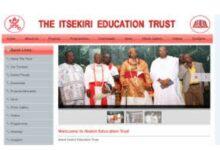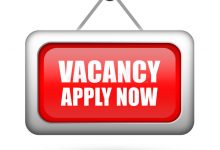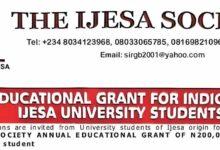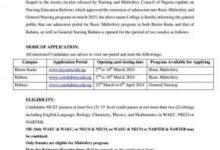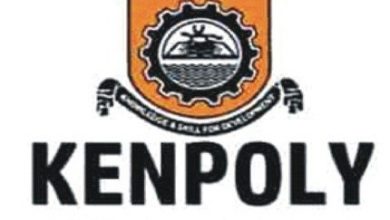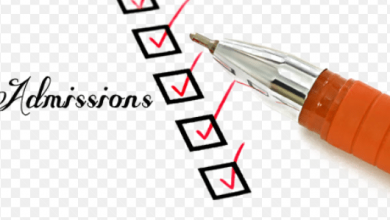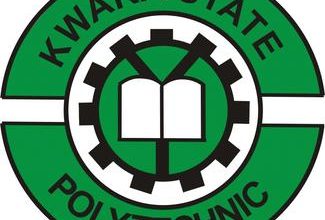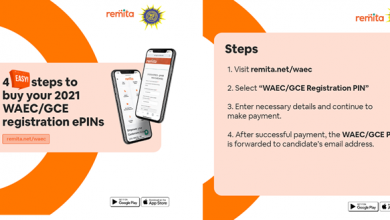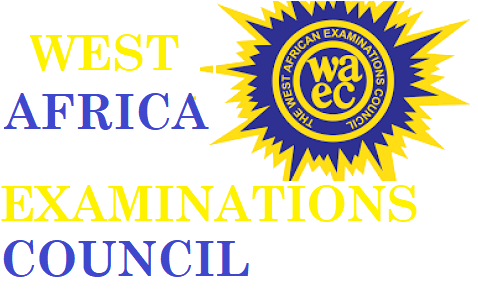
WAEC Syllabus for Yorùbá
WAEC Syllabus for Yorùbá. WAEC Syllabus for Yorùbá is available for all candidates who want to participate in the examination. The West African examination council (WAEC) has officially introduced a syllabus that will guide all the WAEC candidates who wish to write the WAEC examination this year. For a very successful WAEC Yorùbá examination for this year, you need to check out the available areas of concentration. It has been divided into sections with chapters, followed by the topics to be covered in preparation for the exams. In the WAEC Syllabus for Yorùbá, you will also see the format of how the WAEC Yorùbá questions will be presented. Waec Result
There are 2 sections to answer questions from. Paper 1 is Objective and paper 2 contains essay questions and paper 3 is the practical section. Where paper one (1) carries 1 hour for 60 marks; paper two (2) carries 2 hours for 100 marks and paper 3 1 hour 50 minutes for 70 marks. Jamb form
👉 Relocate to Canada Today!
Live, Study and Work in Canada. No Payment is Required! Hurry Now click here to Apply >> Immigrate to Canada
This WAEC syllabus is for both the O’level WAEC and General Certificate Examination (GCE) candidates. Final year students in the senior secondary school level and external candidates are eligible to make use of this syllabus and prepare ahead of the examination. WAEC Syllabus for Yorùbá
See the full detailed information concerning the WAEC Yorùbá Syllabus below.
PREAMBLE:
This examination syllabus is based entirely on the Yoruba curriculum developed by NERDC in 2007.
AIMS AND OBJECTIVES
The syllabus is designed to:
- enable candidates speak, read and write competently in Yoruba and communicate effectively with other speakers of the language;
- familiarize candidates with the sound system, grammatical structures and other features of Yoruba Language;
- acquaint candidates with the necessary tools needed for a thorough appreciation of Yoruba speech usage, literature and ulture (customs and institutions).Npower Recruitment
SCHEME OF EXAMINATION
The examination will consist of two papers, Papers 1 and 2. It will test the following aspects of Yoruba Language: comprehension, composition, sound system, grammar and translation. It will also test selected texts of oral and written literature as well as Basic Principles of Literary Appreciation, Customs and Institutions. The rubrics shall be written in Yoruba.
PAPER 1 shall contain 60 multiple-choice objective questions on Language, Literature and Culture. The paper shall have three sections, Section A, B and C. Candidates will be required to answer all the questions in 1 hour for 60 marks. The questions shall be distributed as follows:
Section A: LANGUAGE
👉 Relocate to Canada Today!
Live, Study and Work in Canada. No Payment is Required! Hurry Now click here to Apply >> Immigrate to CanadaComprehension (2 short passages) – 10 items
Composition – 4 items
Sound System – 6 items
Grammar – 6 items
Translation – 4 items
- 30 items
Section B: LITERATURE
Basic Principles of Literary Appreciation – 4 items
Oral Literature – Prose – 3
– Poetry – 3 – 9 items
– Drama – 3
Written Literature – 3 Prose –
– Poetry – 3 – 9 items
– Drama – 3 22 items
Section C: CULTURE
Customs – 4 items
Institutions – 4 items
8 items
Total = (30 + 22 + 8) = 60 items
CONTENT
The content for Paper 1 shall be the same as for Paper 2
In Section B, all questions other than those on Basic Principles of Literary Appreciation will be on the set books for Paper 2.
PAPER 2: Shall be essay type questions on language, literature and culture. It will also have three sections, Sections A, B and C, have 2 hour duration and carry 100 marks.
Candidates will be required to answer six questions in all: three questions from Section A; two questions from Section B and one question from Section C. They will also be required to answer all the questions in Yoruba using the official Yoruba orthography and metalanguage.
CONTENT
Section A: LANGUAGE
Composition
Candidates are advised to write 300 words and spend not more than 45 minutes on this section. The essay will be any of the following types: Dollar to Naira Rate
- Narrative
- Descriptive
- Argumentative
- Expository
- Dialogue
- Debate
- Letter writing
Sound System
Candidates will be required to answer one question from the two to be set.
Areas to cover include:
- Vowels, Consonants and Syllabic nasal
- their production in terms of place and manner
- their basic phonetic and phonemic classification
- Syllable structure
- Sound processes, e.g. vowel harmony assimilation elision
- Sound system aspect of the orthography
- Tones and tone notation
Grammar
Candidates will be required to answer one question from the two questions to be made available.
Areas to cover are:
- Word structure and word formation
- Numerals: basic and derived
- Word classes: nouns, verbs, adverbs, pronouns, adjectives, etc
- Grammatical categories: subject, object, complement, predicate, number, person, tense, aspect, mood, etc.
- Phrases and clauses
- The structure and type of sentences.
SECTION B: Literature
This section is made up of Oral Literature and Written Literature.
Oral Literature – Prose, Poetry, Drama
In Oral Literature, there will be 3 set books covering the different genres. 1 question will be set from each set book and candidates will be required to answer any 1 of the 3 questions.
Written Literature – Prose, Poetry, Drama
In Written Literature, there will be three set books covering the different genres. One question will be set from each set book and candidates will be required to answer any one of the three questions. Jamb Result
SECTION C: Culture
This section will consist of questions on customs and institutions. Two questions will be set and candidates will be required to answer any one of them.
Areas to cover will include:
Customs
- Make-up and adornments
- In-door and out-door games
- Pregnancy and its care
- Naming
- Home training: greetings, respect for superiors, cleanliness, tolerance, integrity, hard work, etc.
- Yoruba foods
- Non-verbal communication
- Funerals: traditional and modern methods
- Inheritance: traditional and modern methods.
Institutions
- Traditional occupations
- Marriage
- Politics: family structure, age grades, chieftaincy, Obaship, etc.
- Child care
- Ancestors
- Yoruba beliefs about Olodumare (God), deities/divinities, other invisible forces, etc.
- Modern religions: Islam, Christianity, etc.
- Economy: adverts, money lending, cooperative efforts, etc. Pounds to Naira
NB: To enhance the teaching of this language, it is recommended that schools provide audio-visual materials such as television sets, radios, tape-recorders and tapes, cameras, charts and artefacts.
SELECTED TEXTS FOR 2014 – 2015
Author Title Publisher
LANGUAGE
- Abiodun, Jibola: (1996) Aroko Ati Aayan, Ogbufo. Majab (Ilorin)
- Owolabi, K: (1989) Ijinle Itupale Ede Yoruba Extension Publications (Ibadan)
- Bamgbose, A: (1991) Fonoloji Ati Girama Yoruba. University Press (Ibadan)
LITERATURE
ORAL LITERATURE
PROSE
- Ojo, Olagoke: (2005) Ijapa Tiroko Oko Yannibo Longman (Lagos)
POETRY
- Abimbola, Wande: (2004) Awon Oju Odu University Press
Mereerindinlogun (Ibadan)
(ppi-xxxi; 52 – 96)
DRAMA
- Ogunniran, L: (2007) Eegun Alare Macmillan (Lagos)
WRITTEN LITERATURE
PROSE
- Eso-Oluborode, Sunday: Olorunsogo Sumob Publishers
(1994) (Osogbo)
POETRY
- Olayiwola, Ademola: Akowe ko wura Extension Publications (2007) (Ibadan)
DRAMA
- Awe, Debo: (2004) Apoti Alakara Elyon Pulibshers (Ilesa)
CULTURE
1. Adeoye, C.L.: (1979) Asa Ati Ise Yoruba University Press (Ibadan)
- Olajubu, O. (1978) Iwe Asa Ibile Yoruba Longman (Lagos)
- Daramola, A. ati Jeje. Asa Ati Orisa Onibon-Oje (Ibadan)
REFERENCES
LANGUAGE
Bamgbose (ed): (1983) Iwe Ede Iperi Yoruba Vol. 1 YSAN/NERDC
Awobuluyi (ed): (1990) Iwe Ede Iperi Yoruba Vo. ll UPL/NERDC
Egbe Akomolede ati Asa Eko Ede Yoruba Ode Oni SSI – III Macmillan
Yoruba, Naijiria: (1988)
Ajayi W.B.: (1989) Egberun Ibeere Ewonidahun Hienemann
Mustapha D-et al: (1983) Osupa Ede Yoruba I-III Nelson
“ “ (1987) Iwe Eko Ede Yoruba Titun I-III UPL
Owolabi, O. et al: (1984) Ijinle Ede ati Litireso Yoruba Evans
Babalola, A. et al: (1988) Iwe Imodotun Yoruba I-III Longman
Awoyale, Y. et al: (1984) Eko Ede Yoruba Ode Oni JSI-III Macmillan
Egbe Akomolede ati Yoruba Gbode Macmillan
AsaYoruba, Naijiria: (1986)
Odujinrin, J.S.A.: Modern Lesson in Yoruba Part I-III Odujinrin Publishers
Awobuluyi, O. (1978) Essentials of Yoruba Grammar UPL
Bamgbose, A. (1967) A short Yoruba Grammar Heinemann
Akinlade, Kola: (1987) Owe Pelu Itumo Longman
Fabunmi, M.A.(1969) Yoruba Idioms. AUP
Delano, I.O. Owe Lesin Oro UPL
Koseemanii, Supo: (1987) Owe ati Asayan Oro Yoruba Vantage
Olopade, A: (1991) Asayan Akanlo – Ede Yoruba Gbemi Sodipo Press
Adewoyin, S.Y. (2006) Imo Ede, Asa ati Corpomutt Publishers
Litireso Yoruba 1-III
LITERATURE
Alaba and Ogunsipe: (1982) Iwe Afinimona Lori Awon Nelson
Iwe Fagunwa
Ogunsina, Bisi: (1981) Iwe Akoyawo Alaye lori O le ku UPL
Egbe Akomolede ati Asa Ewi Yoruba Lakotun 1-III Evans
Yoruba, Naijiria: (2007)
CUSTOMS AND INSTITUTIONS
Ladele, T.A.A. et al (1986) Akojopo Ijinle Asa Yoruba Macmillan
Adeoye, C.L.: (1985) Igbagbo ati Esin Yoruba Evans
Opadotun, O.: (1966) Aroko Vantage
Adeniji, A.A.: (1987) Ogun ni ile Yoruba Longman
Adeoye, C.L.: (1982) Oruko Yoruba UPL.
Check and Confirm: How much is Dollar to Naira Pounds to Naira Rate Today
